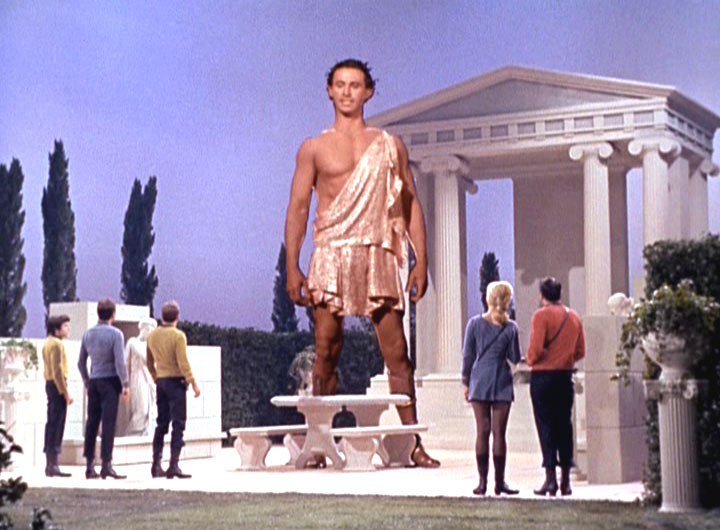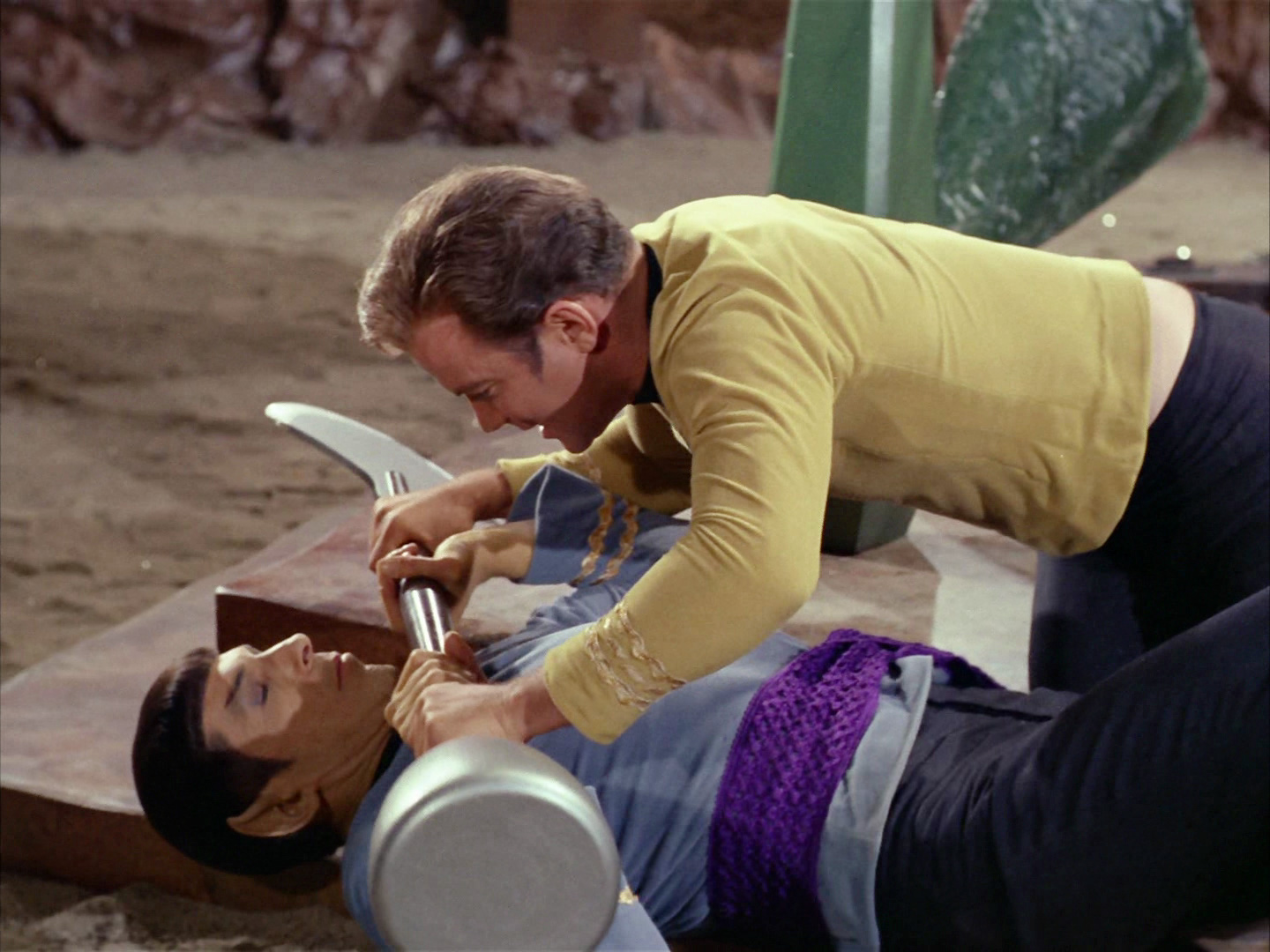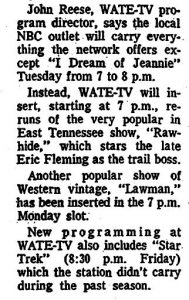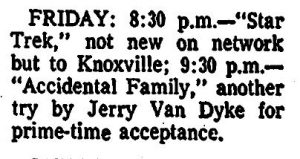
When the topic of Greek mythology came up in high school, I quickly realized that I had been exposed to the subject before. It was the Greek god Apollo, as depicted by the versatile actor Michael Forrest, in the episode “Who Mourns for Adonais?”
The story is an intriguing idea in its depiction of how Greek gods could just be beings on a higher level of existence instead of a true deity. My personal beliefs are that deities can be fallible, and Apollo certainly is that. His constant demands for praise certainly are shortsighted. A caring individual would certainly realize that the humanity of the 23rd century would have certainly outgrown the need for a being such as himself to give guidance and power.
That alone is not the true driving element of the story. What drives it is the love interest between Apollo and Lieutenant Carolyn Palamas, played by Leslie Parrish. She is an historian on the Enterprise, the A&A officer (as McCoy puts it at one point, meaning Archaeology and Anthropology.) She takes a liking to Apollo and is quite smitten with him. Kirk forces her to remember her duty of course and she has to poison that love for the betterment of the crew’s survival. It had to end that way and it is very tragic to watch Apollo be destroyed and fade into oblivion. Kirk is left to think if a little bit of worship would have been too much to ask.
On screen, that’s where the story ended. It has been well documented that there was a tag scene on the bridge where we learn that Carolyn was in fact impregnated by Apollo during their time together on Pollux IV. If you want to read the scene as it was written, go here to Orion Press and scroll down to the bottom of the page.
Of course NBC’s Broadcast Standards would never have allowed that to remain in a TV show in 1967. It was way too suggestive. However, it is still a very controversial and storied point in the story. It has great emotional impact and definitely could have set up a sequel episode dealing with that child and what would happen from that point forward. If only… if only…
Next week: I. AM. NOMAD.











